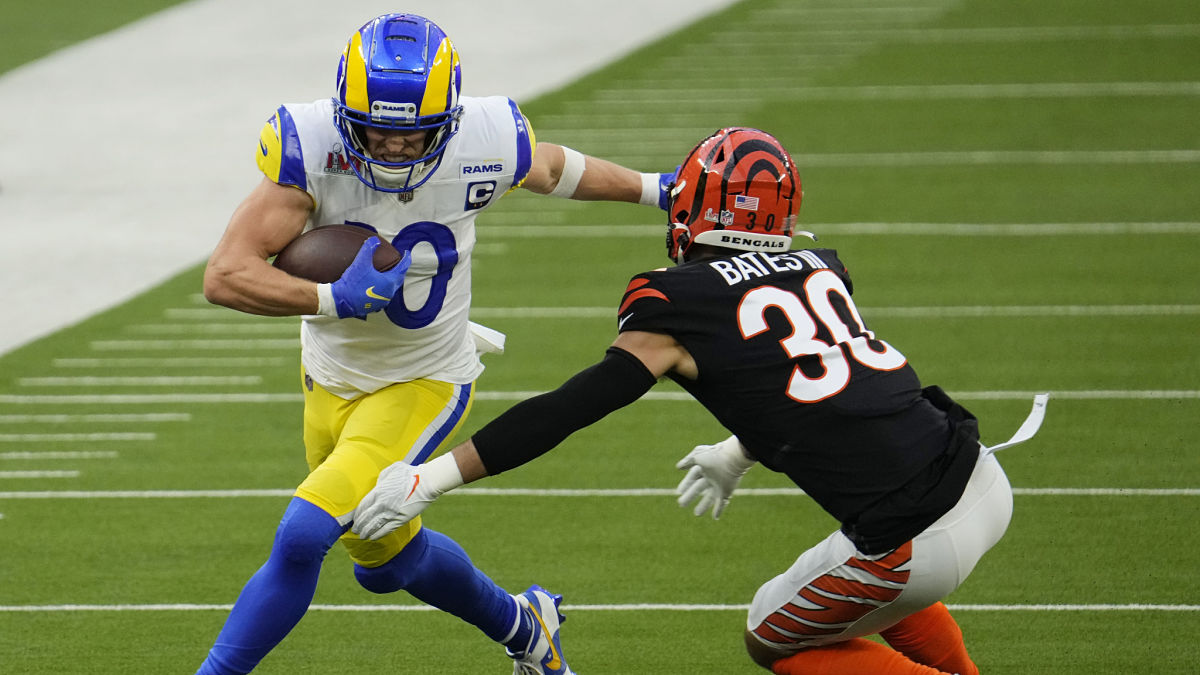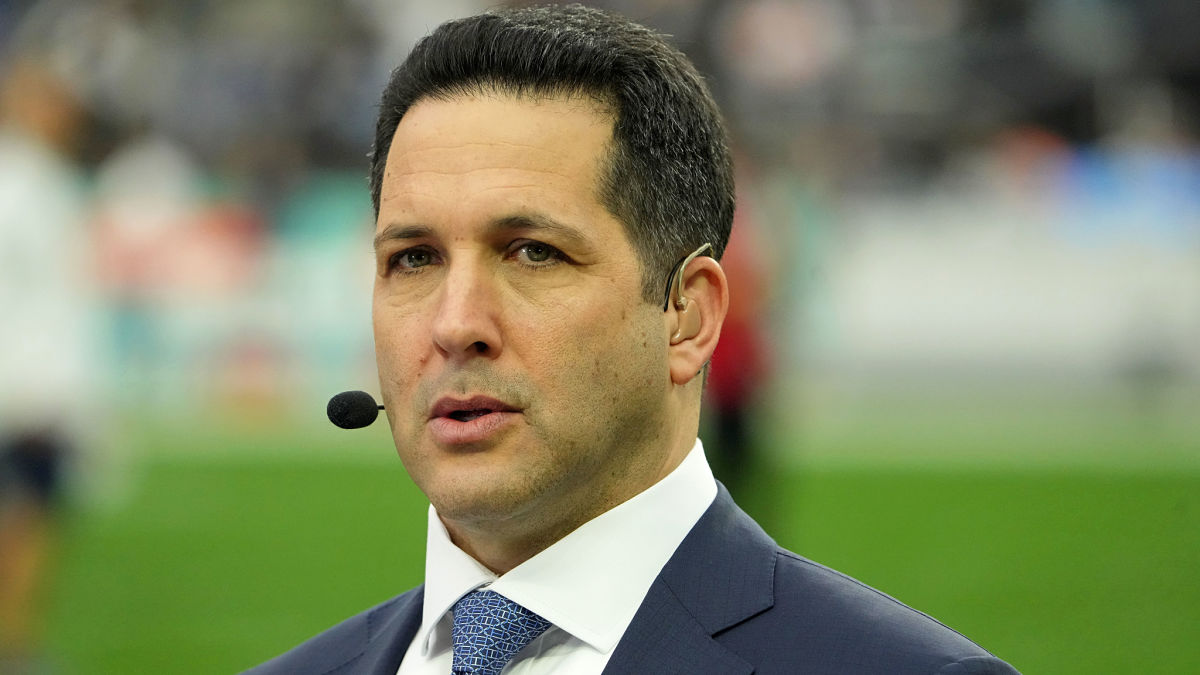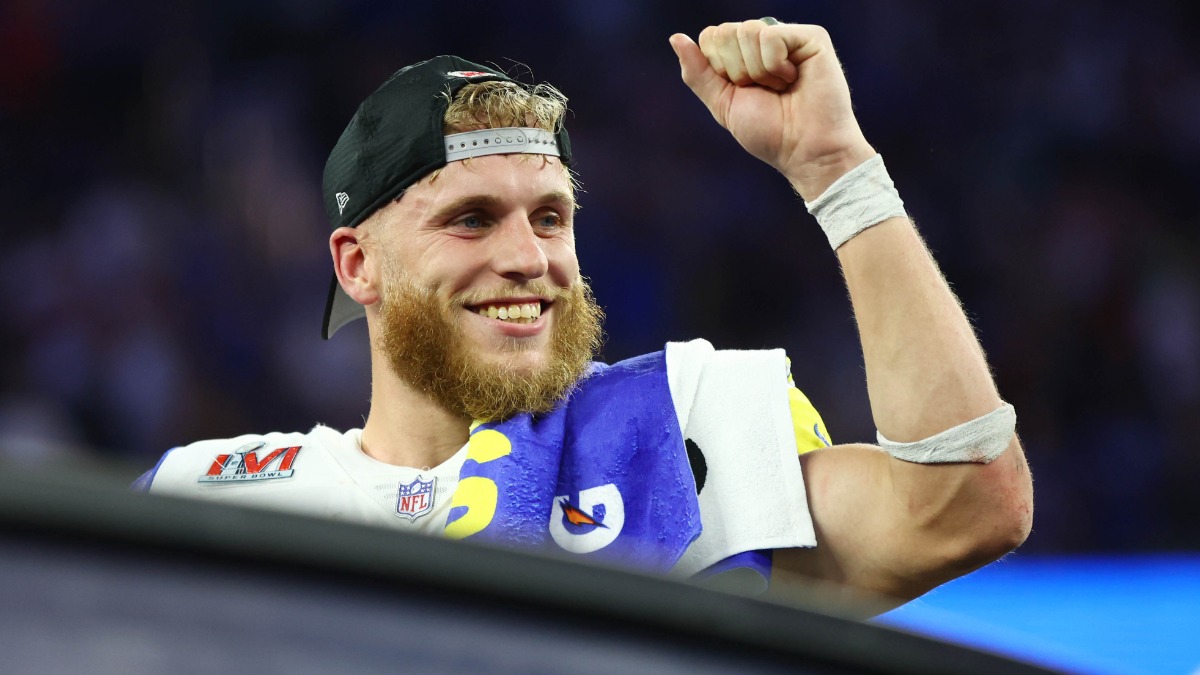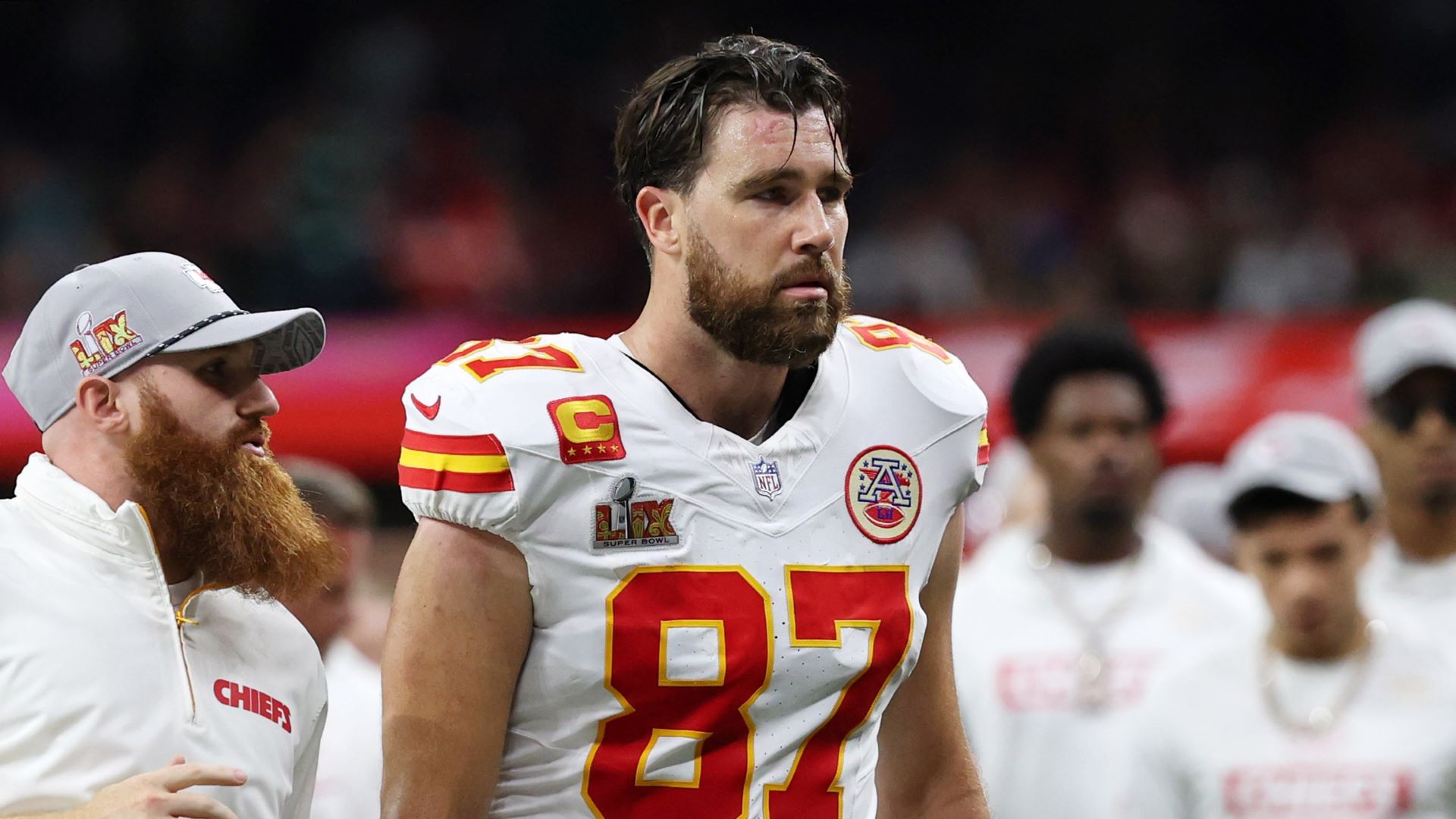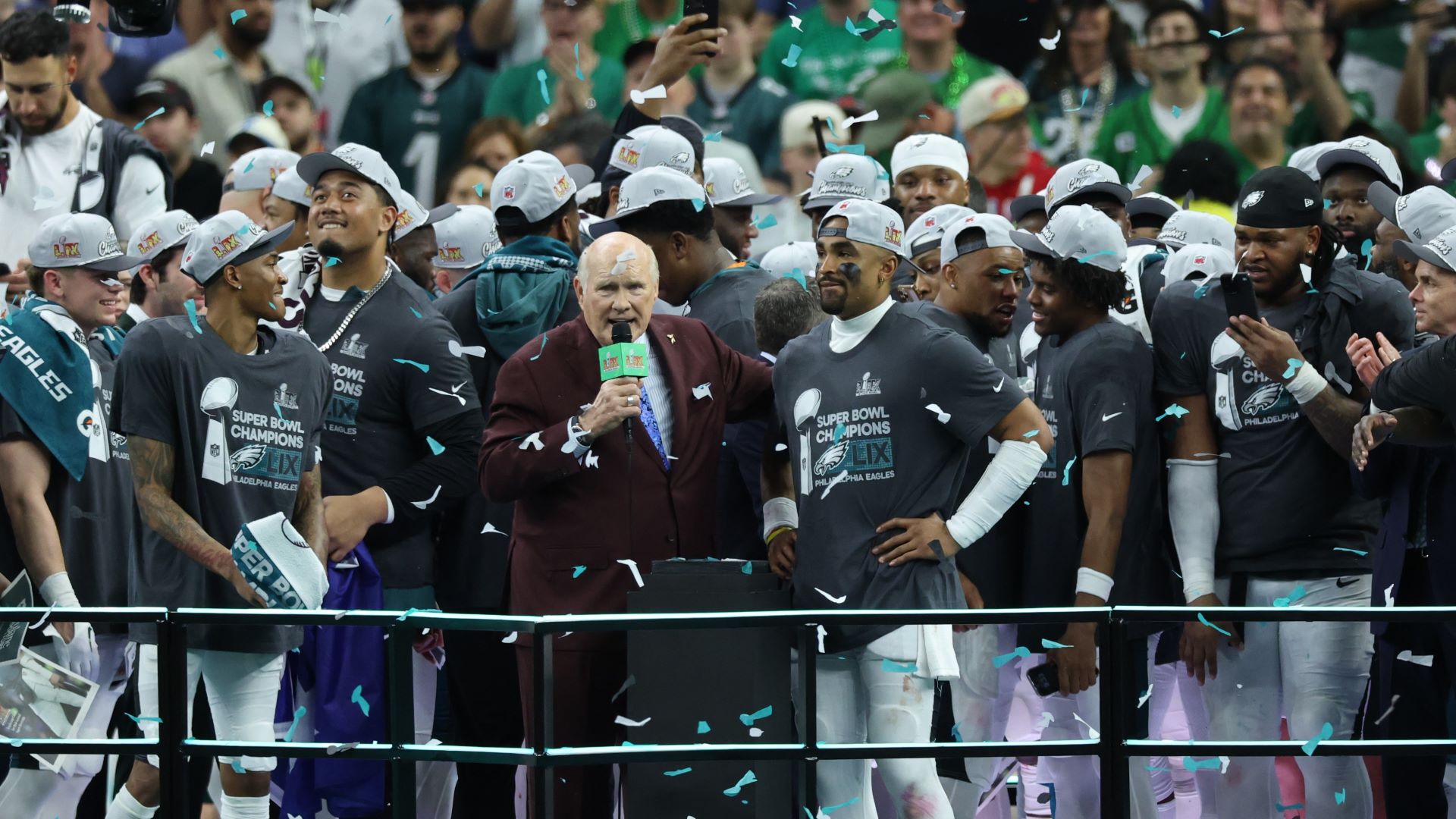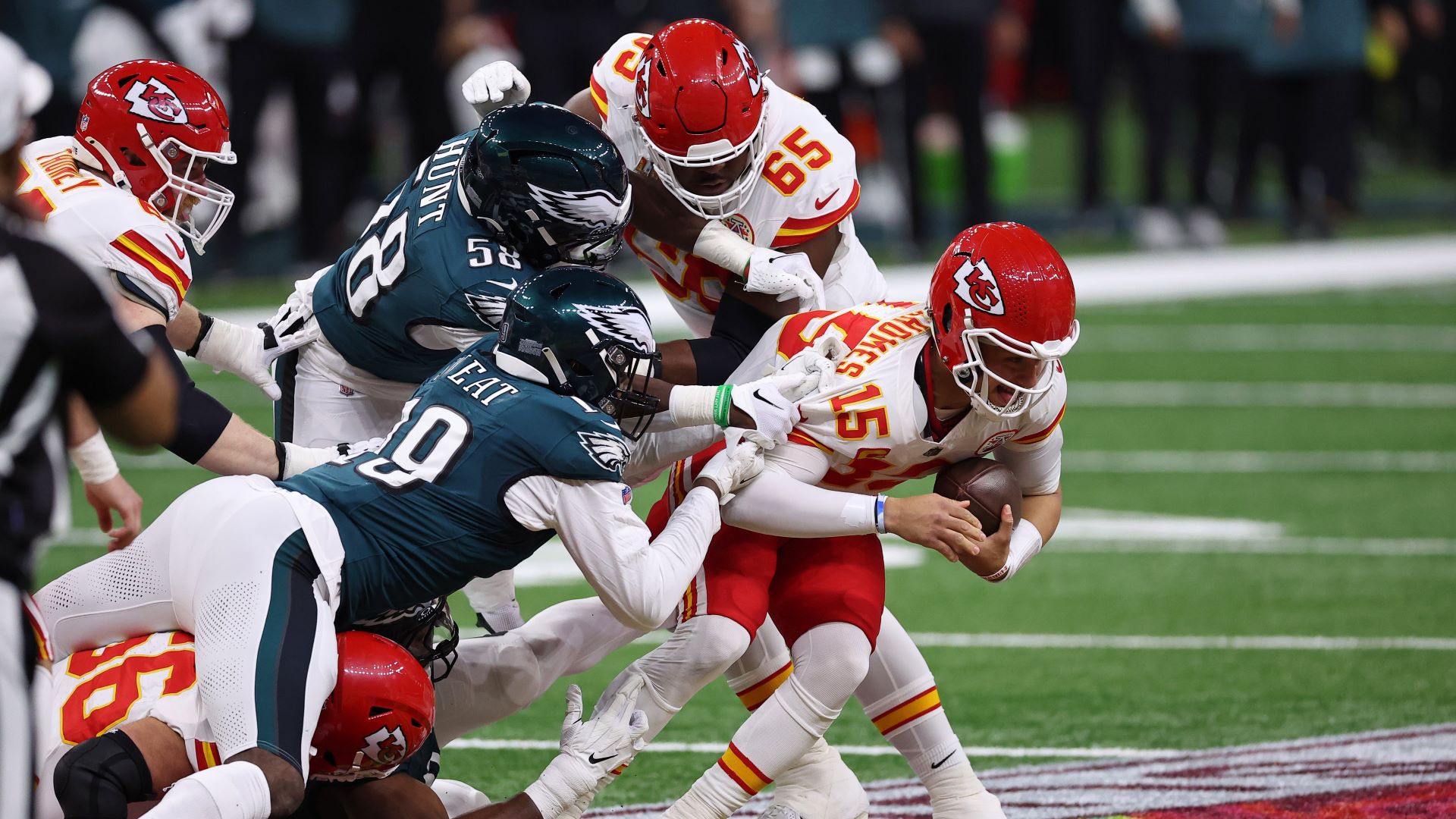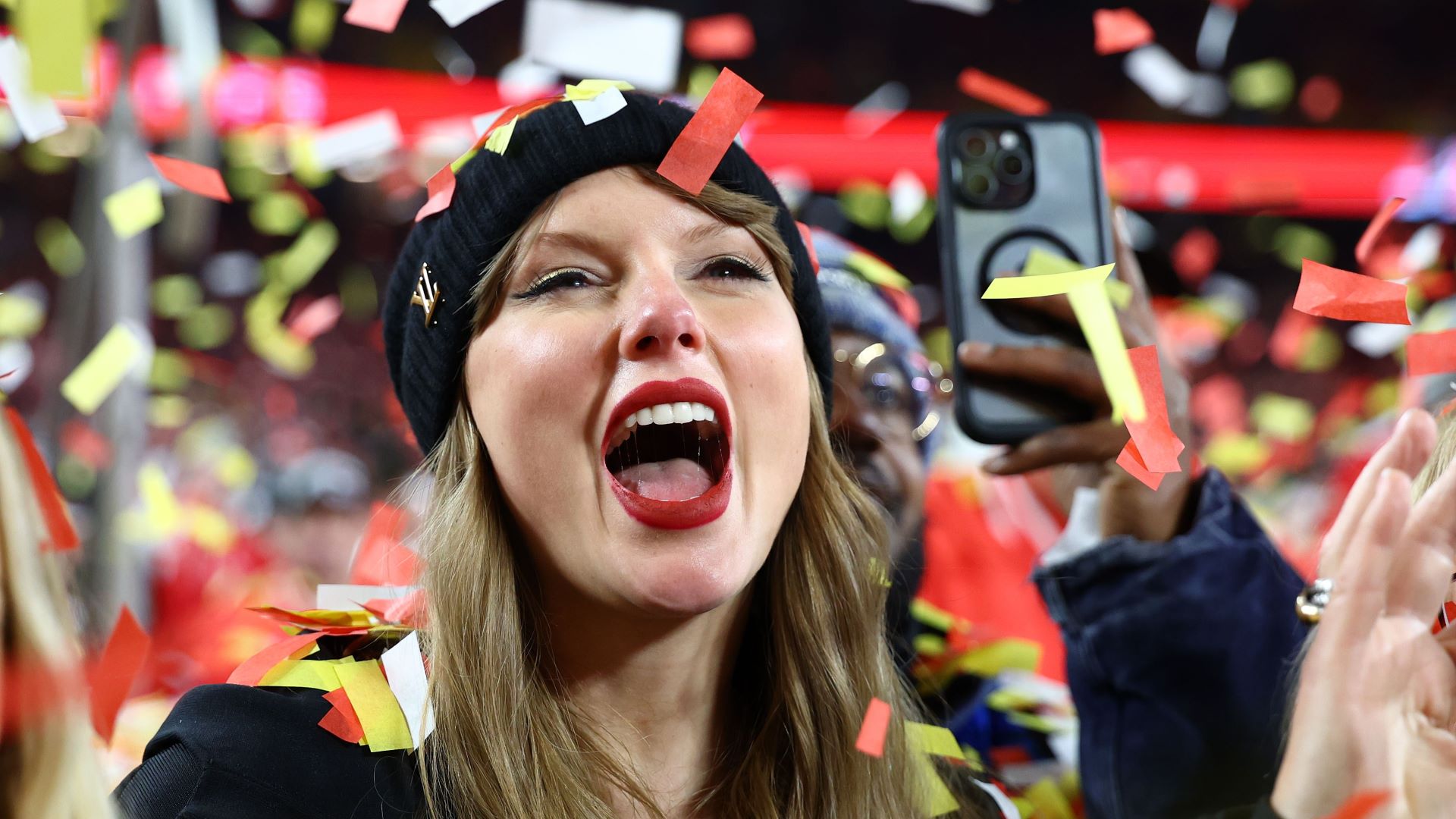Super Bowl LVI hinged on a controversial red-zone penalty in the game's final minutes.
With the Los Angeles trailing by four, Matthew Stafford fired a third-down pass to wide receiver Cooper Kupp that fell incomplete, setting up what would have been a game-deciding fourth down.
But the Super Bowl officiating crew, which had kept its flags tightly holstered for most of the evening, penalized Bengals linebacker Logan Wilson for defensive holding on Kupp, giving the Rams a fresh set of downs at the Cincinnati 4-yard line.
Officials proceeded to throw flags on each of the next two plays, as well, including a defensive pass interference call on cornerback Eli Apple against Kupp that gave LA first-and-goal from the 1. After an unsuccessful Stafford sneak, Kupp beat Apple for what proved to be the game-winning touchdown.
The Rams won 23-20, and Kupp was voted Super Bowl MVP.
The penalty on Wilson, in particular, sparked a firestorm of criticism on social media, with viewers wondering why Ron Torbert's crew seemingly altered its definition of pass interference at the most pivotal juncture. Super Bowl LVI had featured just four total penalties to that point: one false start, one delay of game, one unnecessary roughness and one unsportsmanlike conduct.
Wilson voiced his displeasure in his postgame news conference.
"Cooper came up to me and tried to push off of me, and I thought I made a good play on the ball," the linebacker told reporters at SoFi Stadium. "The refs saw otherwise. It's a tough call."
Bengals head coach Zac Taylor and several other Cincinnati players also were asked about the costly penalty.
Taylor: "It's tough. I thought it was a really well-officiated game, to be honest with you, and sometimes it comes down to moments like those. I didn't have a great look at it, but I thought the officials did a nice job."
Cornerback Chidobe Awuzie: "Logan made a hell of a play, I thought, on Cooper Kupp on third down, and the penalty flag comes throwing out. Obviously, I'm not a ref; I don't know what happened on that play. But we fought."
Defensive end Trey Hendrickson: "Well, there's some things that are out of our control. There were a couple judgment calls there. ... Those are things that are out of our control. There's nothing that we could say that was going to change anything."
Wide receiver Tyler Boyd: "At the end of the day, that's not my job to speak on it. But I'm hurt about it, because they weren't throwing flags the whole game. They should have just let it play out how they were doing the whole game. But it's a lot of pressure when the time's about to be over. It is what it is."
Defensive tackle D.J. Reader: "We got some unlucky calls there at the end, but we've got to play better."
Exacerbating the Bengals' frustration was the fact that nearly the entire Rams' offensive line appeared to jump early on the play Wilson was flagged for.
The refs didn't only favor the eventual Super Bowl champs, however. On the first play of the second half, Bengals wide receiver Tee Higgins got away with a blatant facemask on cornerback Jalen Ramsey on a 75-yard touchdown pass.
Had Cincinnati been able to hold its seven-point fourth-quarter lead, Higgins' no-call would have been heavily scrutinized.
The Bengals also hurt themselves with a bone-headed penalty late in the first half. After an end-zone interception by safety Jessie Bates III, cornerback Vernon Hargreaves, who was inactive for the game, ran onto the field to celebrate. Because Hargreaves was not in uniform, his actions drew a flag for unsportsmanlike conduct, forcing quarterback Joe Burrow to start the ensuing drive at his own 10-yard line.
"It's hard when you're going to be a little bit better field position than that," Taylor told reporters. "That's a silly thing. We pride ourself on being a disciplined team, and that was a very, very undisciplined moment, and that's frustrating."

